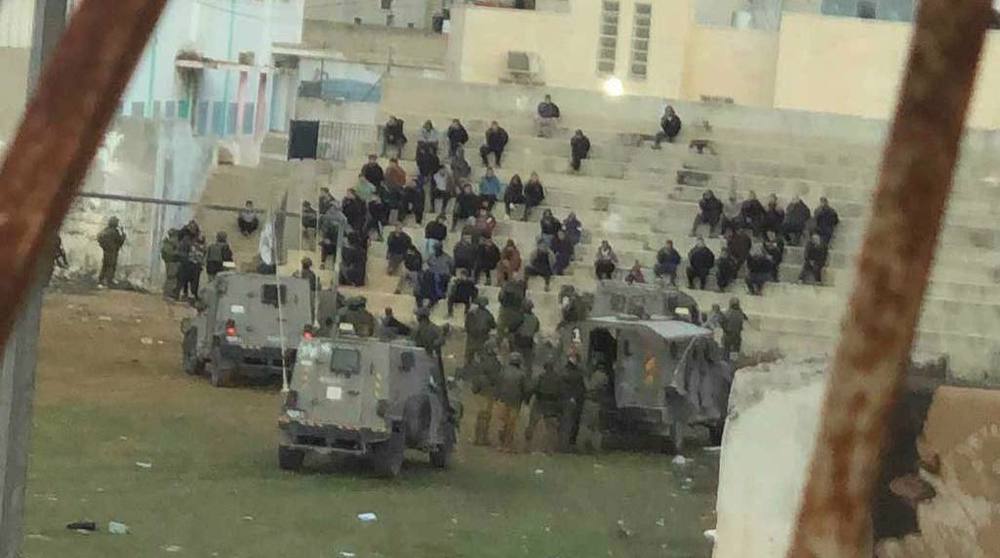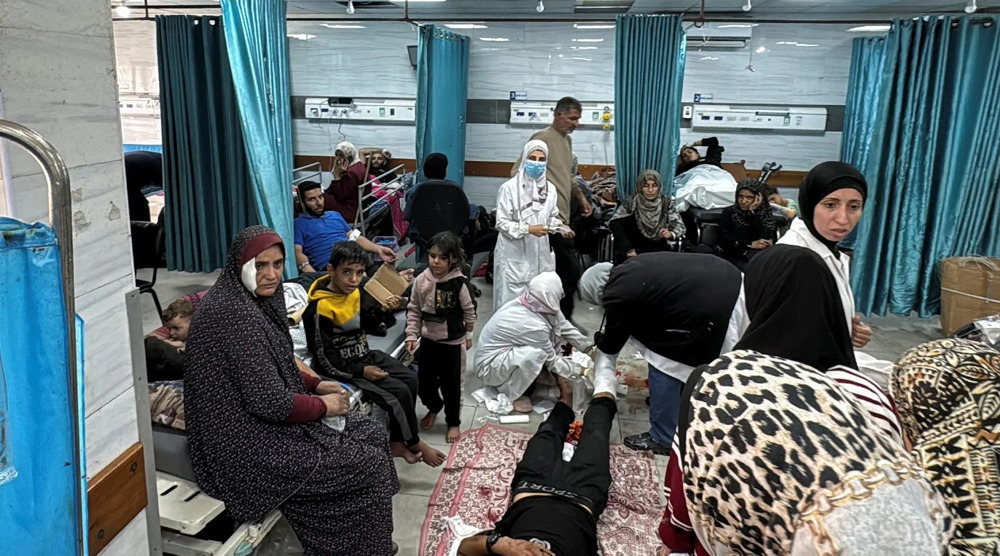Israeli snipers say how they incapacitated Palestinians in peaceful protests
A group of snipers with the Israeli military who took part in the suppression of peaceful protests by the Palestinians in the besieged Gaza Strip have opened up to a local media, recounting the harrowing tale of how they intentionally incapacitated protesters over a time span of two years.
A report carried by the Israeli daily Haaretz revealed the content of interviews with the six snipers, out of dozens of such servicemen approached, who agreed to relate what it really looked like through their gun sights when they targeted Palestinians.
You sent us to shoot 8,211 protesters. Now you have to listen to us | Israeli snipers open up https://t.co/8Kr4xryNwS
— Haaretz.com (@haaretzcom) March 7, 2020
The anti-occupation demonstrations, during which these snipers were doing their horrendous job, commenced on Land Day on March 30, 2018 and continued on a weekly basis, known as the Great March of Return, until this past January. They were mainly held near the border fence separating the blockaded enclave from the Occupied Territories.
According to figures by the UN Office for the Coordination of Humanitarian Affairs, Israeli forces shot dead 215 protesters. However, the Gaza Health Ministry raises the number of fatalities to around 310.

The interviewees, whose names have been changed in the report arguably for security reasons and who were discharged from the military, described the nature of their mission in how they shot the protesters, mostly young men and teenagers, in their knees, thus incapacitating them for a long time and, at times, even killing them by ‘choosing’ to make mistakes and aim higher.
Eden, one of the snipers, revealed that he managed to break the “knee record” in a much-heated protest on May 14, 2018, on the eve of the 70th anniversary of Nakba Day (Day of Catastrophe), which coincided with the US embassy relocation from Tel Aviv to occupied East Jerusalem al-Quds.
“On that day, our pair had the largest number of hits, 42 in all. My locator wasn’t supposed to shoot, but I gave him a break, because we were getting close to the end of our stint, and he didn’t have knees. In the end you want to leave with the feeling that you did something, that you weren’t a sniper during exercises only. So, after I had a few hits, I suggested to him that we switch. He got around 28 knees there, I’d say,” he said.

They said snipers usually work in pairs, along with another individual known as a locator, who is also a sniper by training but whose main job is to provide the two snipers with precise data, including the distance from the target, wind direction and the like.
The interviewed snipers said there were snipers in the Israeli military who deliberately made a mistake of aiming higher and inflict a more lethal wound on the target.
“If you mistakenly hit the main artery of the thigh instead of the ankle, then either you intended to make a mistake or you shouldn’t be a sniper. There are snipers, not many, who ‘choose’ to make mistakes [and aim higher]. Still, the numbers aren’t high. [In comparison,] there are days when you collect 40 knees in the whole sector. Those are the proportions,” said Amir, another Israeli sniper.

They insisted that the best target is the knee, among other parts of the leg, since it lacks many capillaries and consequently there is not much blood, meaning that you have done a clean job.
“You are not meant to see massive bleeding, because in the region of the knee and bones there aren’t a lot of capillaries. If you see blood, that’s not a good sign, because you probably hit too high. The regular scenario is supposed to be that you hit, break a bone – in the best case, break the kneecap,” said Itay, another Israeli sniper.
There are reports of snipers that suffered post-traumatic stress, said Tuly Flint, a mental health officer in the reserves and a clinical social worker who specializes in trauma, who was also interviewed for the report.
“If I am one of 30 soldiers who is in the area and fires a volley, I don’t necessarily know that I did the killing,” he said, whereas the sniper knows when he has hit his target.

Flint also remembered a sniper from an elite unit who aimed at a protester’s knee but hit too high, and the demonstrator lost his life from loss of blood.
“That soldier, a sniper who was very dedicated to his mission, describes watching the demonstrator bleed to death. He can’t forget the man’s screaming not to be left alone. He also remembers vividly the evacuation [of the body], and the women who wept over him. From then on, that’s all he thinks about and all he dreams about. He says, ‘I wasn’t sent to defend, I was sent to murder.’ Thoughts of the girlfriend of the person he killed also continue haunting him. The result is that he breaks up with his own girlfriend of two years. ‘I don’t deserve to have one,’ he says.”

Daniel, another interviewed sniper, recounted the other side of this unbearable story, aiming at a demonstrator but hitting someone else.
“I know someone who took aim at one of the leaders of a demonstration, who was standing on a box and urging the people to keep marching ahead. The soldier aimed at his leg, but at the last moment the man moved and the bullet missed him. Instead, he hit a little girl, who was killed on the spot. That soldier is a wreck today. He is being watched 24/7, so he won’t commit suicide,” he said.

Israeli snipers did war crimes, must be tried at ICC: Hamas
On Sunday, the Palestinian resistance movement Hamas condemned what the Israeli snipers had revealed of their horrific mission against the peaceful protesters, insisting that these criminals must be tried at the International Criminal Court (ICC).
“Zionist regime's snipers' pride in killing and deliberately wounding Palestinians despite their peaceful demonstrations reflects the cruel and brutal mentality of the regime’s commanders and soldiers,” said Hamas spokesman Hazem Qassem in a statement, referring to the Haaretz report about the Israeli snipers.
“The Israeli regime must fully pay for these crimes by leaving our land,” he said.

Gaza has been under Israeli siege since June 2007, which has caused a decline in living standards.
Israel has also launched three major wars against the enclave since 2008, killing thousands of Gazans and shattering the impoverished territory’s already poor infrastructure.
Iran: Syrian people will decide their future without foreign interference
IRGC says Iran’s power exceeds borders, warns enemies to adjust themselves
Dozens detained, several wounded in Israeli raids in West Bank
‘Ethnic cleansing’: Hamas blasts Israeli attacks on Gaza hospital amid intl. silence
Saudi delegation meets HTS leader at presidential palace in Damascus
Relentless Israeli ceasefire violations justify need for self-defense: Lebanese MP
Tel Aviv tells Damascus Israeli forces will remain in occupied territory: Report
Dec. 22: ‘Axis of Resistance’ operations against Israeli occupation











 This makes it easy to access the Press TV website
This makes it easy to access the Press TV website